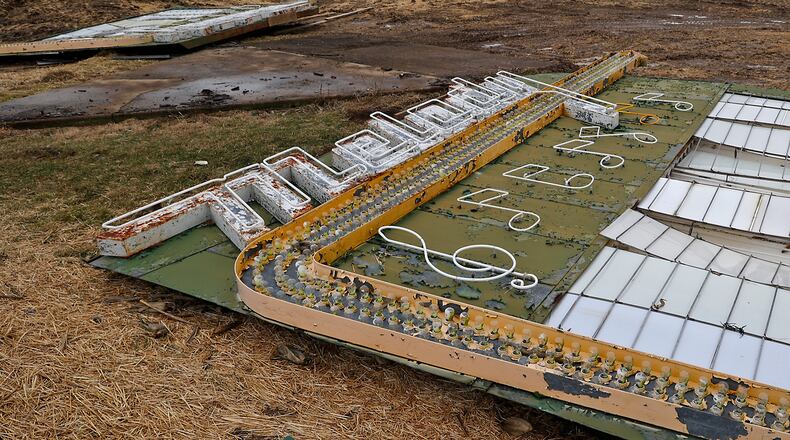Hatfield said it’s unclear what the sign’s future purpose will be, but for now, it is tucked away for safe keeping.
“It is the group’s hope that the sign might eventually find new life in The State Theater project, which also seeks to offer summer downtown outdoor movie experiences,” he said.
The sign may also be donated to the Heritage Center.
“Either way, we’re all grateful that the Melody sign could be saved!” Hatfield said.
The State Theater, once the flagship theater of the Chakeres family, is eyeing a reopening this spring following months of work to refurbish and revitalize the theater.
Melody Drive-In was also owned by the Chakeres family for decades, and owners sold the theater in 2016. It was the last drive-in in the city and one of the few remaining in the region.
Borror is investing more than $400 million into the multi-phase housing project, called Melody Parks as a nod to the land’s history.
The project aims to bring 60 to 80 houses and a couple hundred apartments to the East National Road area in its first phase, with several other phases planned to bring more than 1,250 units total to the property.
Housing units in the Melody Parks community will vary, including single-family homes, multi-family homes and patio-style homes. The patio and multi-family homes are expected to be rentable units.
The development will also include landscaping and greenery in addition to future mixed-use development and land for retail, restaurants and other commercial uses. Fontaine said these spaces could include regional restaurants looking to expand, national brands, banks, grocers and more.
Bill Lackey contributed to this report.
About the Author

